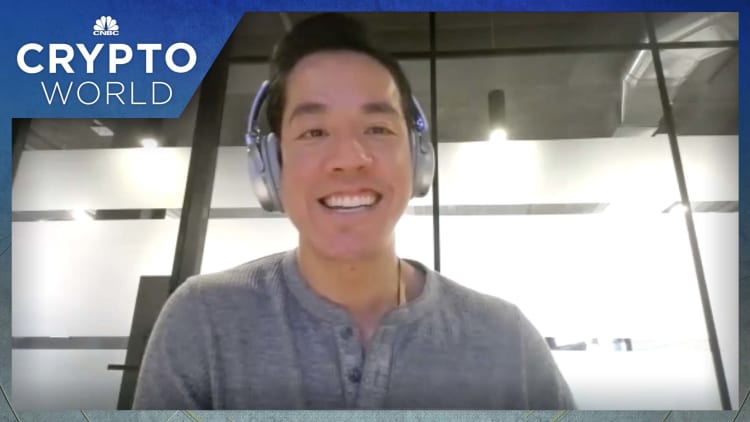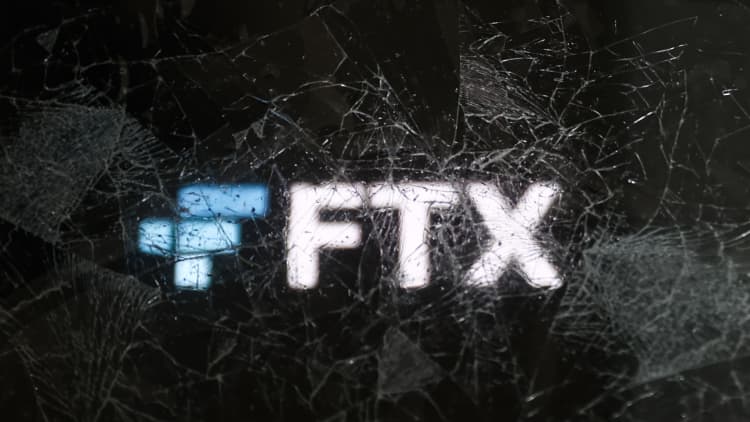Rise of ‘zombie’ VCs haunts tech investors as plunging valuations hammer the industry
An art exhibition based on the hit TV series “The Walking Dead” in London, England.
Ollie Millington | Getty Images
For some venture capitalists, we’re approaching a night of the living dead.
Startup investors are increasingly warning of an apocalyptic scenario in the VC world — namely, the emergence of “zombie” VC firms that are struggling to raise their next fund.
Faced with a backdrop of higher interest rates and fears of an oncoming recession, VCs expect there will be hundreds of firms that gain zombie status in the next few years.
“We expect there’s going to be an increasing number of zombie VCs; VCs that are still existing because they need to manage the investment they did from their previous fund but are incapable of raising their next fund,” Maelle Gavet, CEO of the global entrepreneur network Techstars, told CNBC.
“That number could be as high as up to 50% of VCs in the next few years, that are just not going to be able to raise their next fund,” she added.
In the corporate world, a zombie isn’t a dead person brought back to life. Rather, it’s a business that, while still generating cash, is so heavily indebted it can just about pay off its fixed costs and interest on debts, not the debt itself.
Life becomes harder for zombie firms in a higher interest rate environment, as it increases their borrowing costs. The Federal Reserve, European Central Bank and Bank of England all raised interest rates again earlier this month.

In the VC market, a zombie is an investment firm that no longer raises money to back new companies. They still operate in the sense that they manage a portfolio of investments. But they cease to write founders new checks amid struggles to generate returns.
Investors expect this gloomy economic backdrop to create a horde of zombie funds that, no longer producing returns, instead focus on managing their existing portfolios — while preparing to eventually wind down.
“There are definitely zombie VC firms out there. It happens during every downturn,” Michael Jackson, a Paris-based VC who invests in both startups and venture funds, told CNBC.
“The fundraising climate for VCs has cooled considerably, so many firms won’t be able to raise their next fund.”
VCs take funds from institutional backers known as LPs, or limited partners, and hand small amounts of the cash to startups in exchange for equity. These LPs are typically pension funds, endowments, and family offices.
If all goes smoothly and that startup successfully goes public or gets acquired, a VC recoups the funds or, better yet, generates a profit on their investment. But in the current environment, where startups are seeing their valuations slashed, LPs are becoming more picky about where they park their cash.
Since the firms they back are privately-held, any gains VCs make from their bets are paper gains — that is, they won’t be realized until a portfolio company goes public, or sells to another firm. The IPO window has for the most part been shut as several tech firms opt to stall their listings until market conditions improve.
“We’re going to see a lot more zombie venture capital firms this year,” Steve Saraccino, founder of VC firm Activant Capital, told CNBC.
A sharp slide in technology valuations has taken its toll on the VC industry. Publicly-listed tech stocks have stumbled amid souring investor sentiment on high-growth areas of the market, with the Nasdaq down nearly 26% from its peak in November 2021.

A chart showing the performance of the Nasdaq Composite since Nov. 1, 2021.
With private valuations playing catch-up with stocks, venture-backed startups are feeling the chill as well.
Stripe, the online payments giant, has seen its market value drop 40% to $63 billion since reaching a peak of $95 billion in March 2021. Buy now, pay later lender Klarna, meanwhile, last raised funds at a $6.7 billion valuation, a whopping 85% discount to its prior fundraise.
Crypto was the most extreme example of the reversal in tech. In November, crypto exchange FTX filed for bankruptcy, in a stunning flameout for a company once valued by its private backers at $32 billion.
Investors in FTX included some of the most notable names in VC and private equity, including Sequoia Capital, Tiger Global, and SoftBank, raising questions about the level of due diligence — or lack thereof — put into deal negotiations.
In the past two to three years, a flood of new venture funds have emerged due to a prolonged period of low interest rates. A total of 274 funds were raised by VCs in 2022, more than in any previous year and up 73% from 158 in 2019, according to numbers from the data platform Dealroom.
– WANT TO FIND SOME DATA FROM DEALROOM FOR THIS FOR A CHART –
LPs may be less inclined to hand cash to newly established funds with less experience under their belt than names with strong track records.
“LPs are pulling back after being overexposed in the private markets, leaving less capital to go around the large number of VC firms started over the past few years,” Saraccino said.
“A lot of these new VC firms are unproven and have not been able to return capital to their LPs, meaning they are going to struggle mightily to raise new funds.”
Frank Demmler, who teaches entrepreneurship at Carnegie Mellon University’s Tepper School of Business, said it would likely take three to four years before ailing VC firms show signs of distress.
“The behavior will not be as obvious” as it is with zombie firms in other industries, he said, “but the tell-tale signs are they haven’t made big investments over the last three or four years, they haven’t raised a new fund.”

“There were a lot of first-time funds that got funded during the buoyant last couple of years,” Demmler said.
“Those funds are probably going to get caught midway through where they haven’t had an opportunity to have too much liquidity yet and only been on the investing side of things if they were invented in 2019, 2020.”
“They then have a situation where their ability to make the type of returns that LPs want is going to be close to nil. That’s when the zombie dynamic really comes into play.”
According to industry insiders, VCs won’t lay off their staff in droves, unlike tech firms which have laid off thousands. Instead, they’ll shed staff over time through attrition, avoiding filling vacancies left by partner exits as they prepare to eventually wind down.
“A venture wind down isn’t like a company wind down,” Hussein Kanji, partner at Hoxton Ventures, explained. “It takes 10-12 years for funds to shut down. So basically they don’t raise and management fees decline.”
“People leave and you end up with a skeleton crew managing the portfolio until it all exits in the decade allowed. This is what happened in 2001.”
For all the latest World News Click Here
For the latest news and updates, follow us on Google News.

